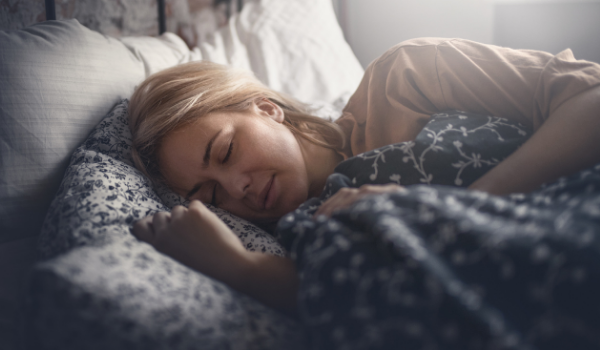Dreaming of a Good Night’s Sleep? Here’s Why It’s Important
Do you feel sluggish and groggy in the morning and wish you could stay in bed? Or do you wake up before your alarm goes off, feeling invigorated and ready to tackle the day? The answer is determined, in large part, by the quality of your sleep.
Getting your seven to nine hours of sleep each night—as recommended by the National Sleep Foundation—is so important. However, not all of us find it that easy to grab some shut eye. An estimated 40 million Americans struggle with some kind of sleep disorder; 60% of U.S. adults say that they don’t sleep well at least a few nights a week.
Addressing your sleep issues can make a world of difference in your quality of life. There are so many benefits to getting enough sleep on a regular basis:
- Elevated mood and energy levels
- A stronger immune system (which means you aren’t likely to get sick as often)
- More vibrant skin (Less sleep = more cortisol, which causes skin inflammation)
- Improved mental focus and clarity
- A potentially lower risk of obesity
- Decreased disease risk for diabetes and heart disease, among other health issues
- Less stress and irritability
- More attentive and focused at work
- Enough time for cellular repair and renewal (which is regulated by sleep-related hormones)
So, really, it’s pretty obvious that sleep is good for you. The real question, especially if you experience insomnia or disrupted sleep, is how do you get that quality sleep?
If you don’t have a chronic issue such as sleep apnea or a medical condition that causes sleep disturbance, then you may just need to relax a little bit. The primary trigger for short-term sleep problems is stress. When the stress is addressed, the sleep generally improves. It’s important to nip these kinds of sleep problems in the bud, before they develop into a long-term problem. An effective way to do that is to practice what’s called the “relaxation response,” which is the opposite of stress-induced fight or flight. The relaxation response reduces the stress that can trigger sleep issues.
Both yoga and meditation are wonderful ways to achieve that blissful, stress-free state. One study found that older adults who had trouble sleeping enjoyed improved sleep quality through mindfulness meditation. Yoga has similar effects, helping insomniacs fall asleep faster and sleep longer. Both yoga and meditation are also ideal nighttime activities because they can help your mind and body wind down for the evening and prepare you mentally and physically for bed. For yoga, focus on gentler styles such as hatha, rather than the more energetic vinyasa.
Establishing regular meditation or yoga practices can be essential for a good night’s sleep. At Firefly, we offer both in private, semi-private, and group classes to help you build a firm foundation for wellness. If your skin is showing the effects of too little sleep, we carry PCA Skin and COOLA skincare products in our spa and our online store. We can help you find just what you need for a healthier-looking complexion.
Now more than ever, we need to relax, recharge—and rest. Contact us today to see how we can help you build a lifestyle that promotes healthy sleep habits.

